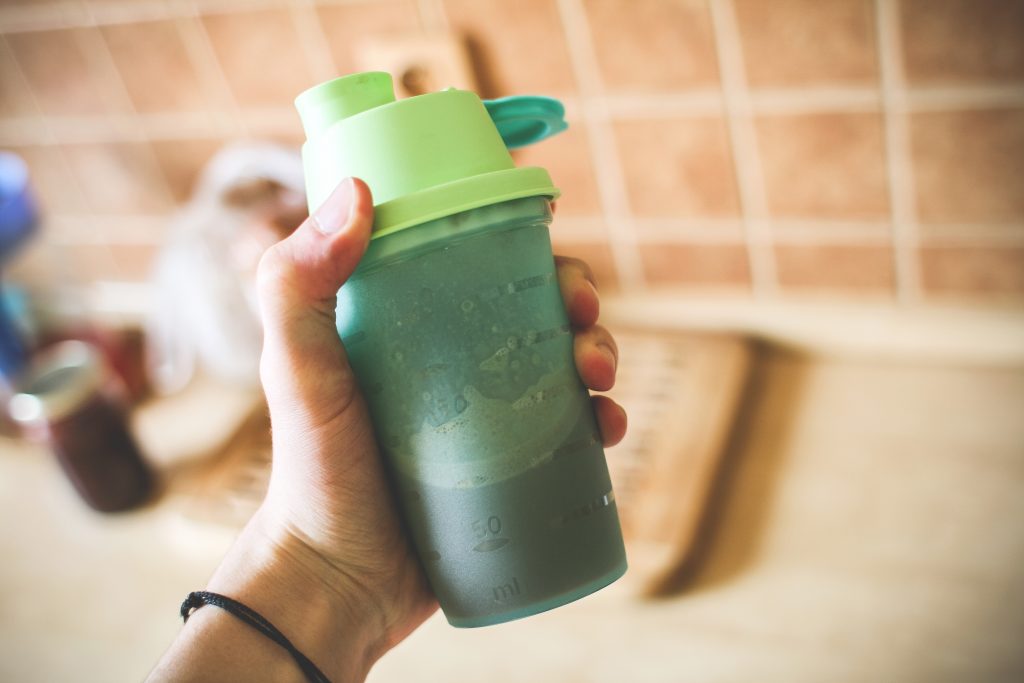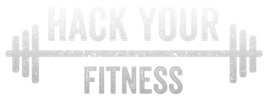 If you’ve been in the fitness world long enough, you’ve probably heard this line from one or more muscle-bound gym bros regarding post-workout essentials:
If you’ve been in the fitness world long enough, you’ve probably heard this line from one or more muscle-bound gym bros regarding post-workout essentials:
“If you don’t drink a protein shake after you lift, you’ll lose all your gains.”
The advice seems legit seeing as how it comes from a guy whose cutoff t-shirt can barely contain his spray-tanned torso. Turns out, he’s wrong.
But how are so many people so misinformed about protein powder and amino acids? You’ve got to trace the protein shake myth back to its source to understand (hint: it’s a mountain of money.)
Once you know the backdrop for this issue, we’ll answer the million-dollar question:
Do you need to take protein powder, amino acids, or neither to reach your fitness goals?
A Quick History of the Supplement Industry
The main reason why the bros in the gym say you need that protein shake is because after an intense workout your muscles need something to start the repair process.
The supplement industry loves preying on these “needs.” Sure, you can meet these needs with natural foods, but wouldn’t you prefer some “Get Shredded Now 3000” powder?
As of 2015 in the United States, the supplement industry was worth $37 billion.
To put that in perspective, the combined revenue of the NFL, MLB, and NBA in 2015 was $27.7 billion.
So in addition to the industry preying on the fabricated “needs” of gym bros, what else is behind all that money? A complete lack of FDA oversight.
Remember all those gangster movies where drug dealers “water down” their drugs with random substances? That’s what happens when the FDA lets anyone make supplements.
Proprietary “protein blends” are typically just protein powder cut with flour. That’s why I always recommend chewing your calories, because you’re hardly ever getting the “20 grams of protein” listed on the powder.
The Difference Between Protein Powder and Amino Acids
There are 20 amino acids your body can digest, however, Branch Chain Amino Acids (or BCAA) are the most important to muscle growth. Within every protein are three types of BCAA:
- Leucine
- Iso-leucine
- Valine
Leucine is the one we care about because it stimulates protein synthesis and suppresses muscle breakdown.
The question that inevitably comes up for most people is “If BCAAs are found in protein, then what’s the difference? Why should I buy BCAAs instead of proteins?”
The two biggest reasons to take BCAAs are as follows:
- Most protein powders are bunk. They don’t provide the protein they claim to, and therefore don’t provide enough BCAAs to support your growth.
- BCAAs are zero calorie. This makes life way easier if you’re working out in a fasted state.
There are benefits to both protein powder and BCAA, so please don’t go and dump your stash into the garbage while sadly shaking your head. Just know that these supplements simply aren’t be-all, end-all solutions.
The truth is, there are in fact certain situations where they can assist with your fitness.
When You Should Take Protein Powder
There are two occasions when I would recommend using protein powder:
1. When You Haven’t Hit Your Protein Requirement
We all live busy lives, and if you find yourself struggling to find a clean protein source, you can take some protein powder to hit your daily requirement.
Just keep in mind that protein powder is not satiating, so you’re still going to be hungry after drinking a protein shake.
2. When You’re Starting A New Dietary Program
When you learn about good foods versus bad foods, and you’re trying to eat clean foods that are low in caloric density, the sheer amount of protein you need can be a little overwhelming.
If you can’t choke down another chicken breast, go ahead and drink a protein shake.
And if you’re going to drink a protein shake, buy some powder that’s worth a shit. Mike Matthews’ Legion product line is one I wholeheartedly recommend.
So what about BCAA—are there any instances where amino acids can help?
BCAAs Are Crucial For Training While Intermittent Fasting
I drink a shake with BCAA in the mornings before and after I work out. BCAA is zero calories, so my body remains in the fasted state, and bookending my workout with it helps feed my muscles beforehand and build them back up throughout the day.
Since I work out in the morning and still have to fast until noon, I also find it psychologically helpful to sip on amino acids during the morning when I’m hungry.
On non-workout days, I’ll drink black coffee to hold me over. You can drink BCAA on non-workout days if you want, but again, that powder is way more expensive than other zero calorie drink options.
I recommend the Xtend brand of BCAA for the number of flavors they offer and the high percentage of leucine you get in each bottle.
Your Gains Will Not Disappear Without Protein Powder
For years I was fooled into thinking that I had to follow every lift with a protein shake or my muscles would break down and I’d lose all my gains.
Once I pulled back the curtain on the supplement industry and discovered the nasty truth, I dropped that habit faster than a pregnant mother drops cigarettes.
Don’t make the same mistake I did: Test everything you hear, drink protein and BCAA when it’s appropriate, and for everyone’s sake, get that meathead at your gym a larger t-shirt.
